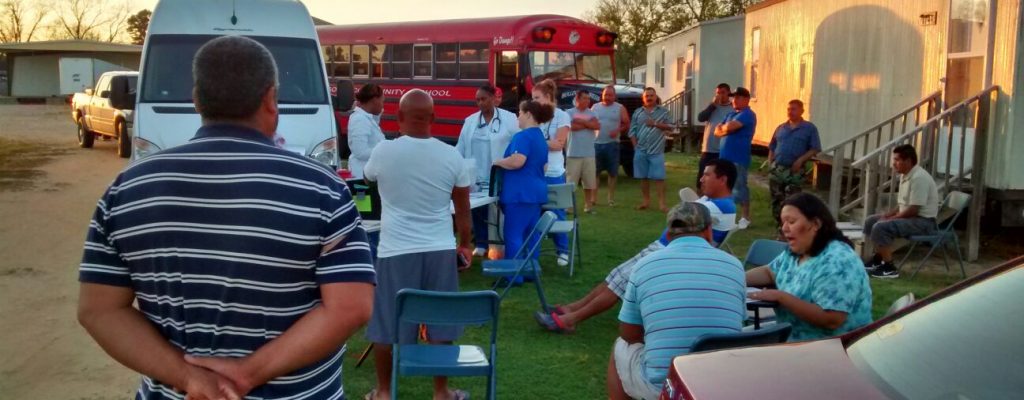Every Tuesday night, beginning in April and running through October, staff at the NC Farmworkers’ Project load up a mobile medical van with supplies, meet up with physicians and students from UNC Department of Family Medicine, and head out to a farmworker camp to provide medical appointments to farmworkers in their homes. Each night of the clinic, the doctor can see between 8 and 12 patients, and Project staff can provide health education and distribute toiletries and other supplies to other workers in the camp.
Collaboration with UNC’s Department of Family Medicine makes this program work. Dr. Gayle Thomas, the medical director of the Farmworker Health program, staffs the medical mobile unit, along with colleagues in the department, residents, and students from UNC.
“There are such tremendous barriers to care for these workers,” Thomas said. “They just can’t take the time away from working, and even if they could, they are in a place they are largely unfamiliar with, have little money, and no transportation.”
The outreach work of the Farmworkers’ Project addresses these barriers in a number of ways, including our partnerships with a local clinic to provide night hours; by providing transportation and interpretation; and by delivering medicines to farmworkers when they can’t get to the pharmacy. But the mobile unit is the most accessible of all of these solutions: farmworkers can take a shower or cook dinner while they wait to see the doctor.
“It’s a great service we provide to farmworkers because it is free, and we take the doctor to the camps. It’s not common in other locations for doctors to come to them,” says Vicky Hernandez, the outreach worker in charge of organizing the mobile unit each week. Nurses and other volunteers with UNC or Campbell sometimes come with the mobile unit to provide other services, like blood sugar checks or physical therapy.
Over the course of the season, more than 300 farmworkers will have appointments on the mobile medical unit. For many of them, the mobile unit is the entry point to follow-up care, and many of these workers might never have come in to a clinic appointment without a visit from the mobile van.
